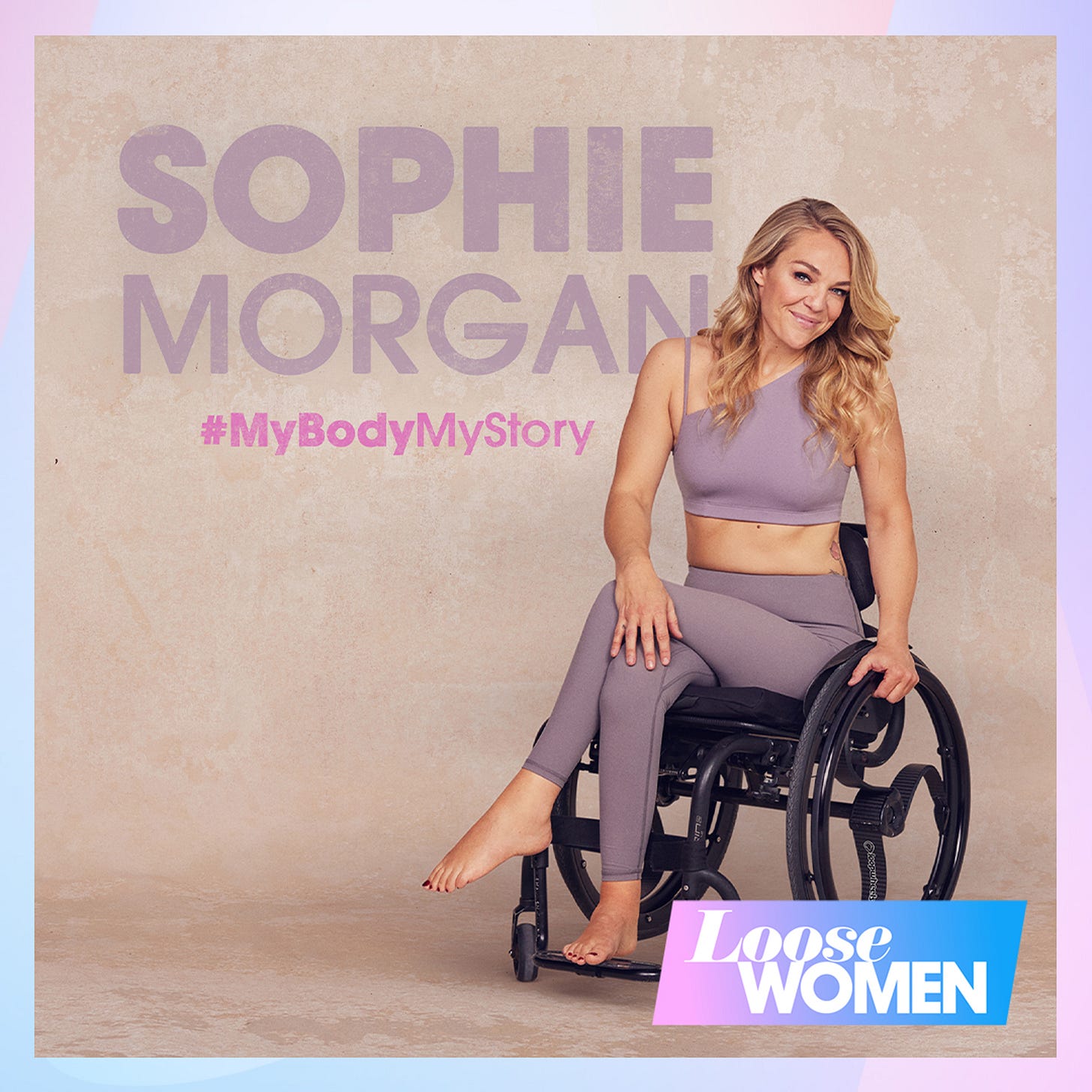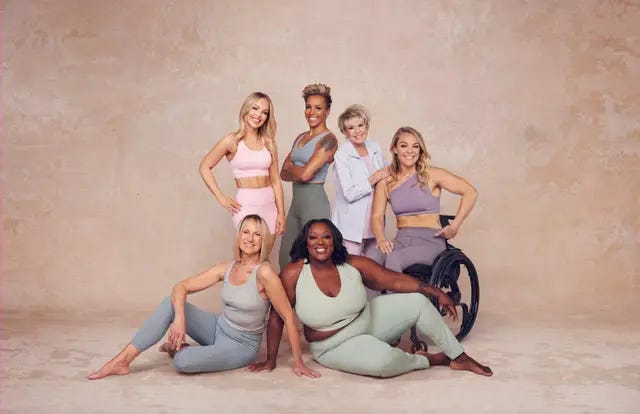Loose Women’s Sophie Morgan on breaking barriers and embracing the label ‘paraplegic’
The TV presenter says she’s proud to be a symbol for the disabled community.
(ITV/PA)
Sophie Morgan has opened up about how her attitude towards her body has changed following a life-changing car crash at the age of 18.
“My paralysis will never leave and so adapting to it and loving it for what it is has been a journey, but I’m very proud of it,” says the TV presenter and disability advocate, who sustained a spinal cord injury in a road traffic accident in 2003, resulting in paralysis from the chest down.
The year after the incident, her first TV appearance was in BBC Two’s Beyond Boundaries, in which she joined 10 other disabled people on an expedition across Nicaragua.
The 38-year-old, who uses a wheelchair, has gone on to have a successful career in TV presenting, most recently fronting Living Wild: How to Change Your Life on Channel 4.
She’s a regular guest panellist on Loose Women, and is taking part in the talk show’s annual Body Stories campaign.
(ITV/PA)
“My body story is kind of complicated because I was born with one type of body and then I had a car crash and was paralysed,” she says.
“Now I live in a very different type of body, so my body is disabled and my body is paralysed – it carries with it a whole story.
“I have scars, I have tattoos, I have all sorts of challenges that my body presents but also it brings me a lot of joy and over the years, I think I’ve come to love it for what it is and embrace it for all of the ways in which it is different.”
Here, Morgan reflects on how she’s learned to love her body and defy expectations…
Describe your body in one word
“Resilient. My body’s resilient. I nearly broke it, I nearly destroyed it but it’s still going and it is just amazing, my body.
“Even though it doesn’t work, the fact that I am able to do all the things I’m able to do because of my body.
“I think there’s something to say about the body positivity movement and trying to tell people to be grateful for your body, and the things that it does for you.”
Why is it important for you to tell your body story?
“When you see groups of women empowering one another, so often the group that gets left out is the disabled group.
“Even in groups of really strong women representing, disabled women aren’t represented so I feel really passionate about being the disabled person that’s representing.”
(ITV/COM)
How have you adapted to your body?
“I think with my paralysis, there’s things I struggle to deal with on a day-to-day basis. I have to use a wheelchair and that throws up other complications too so I think the adapting is twofold.
“I think I got used to living with paralysis quicker than I got used to living in a wheelchair, because getting around in a wheelchair is so hard sometimes so that adapting – I constantly come up against barriers that make it really hard to just live my life.
“I’ve made it my life’s work to break down those barriers but a lot of them make it harder to live in this body, because sometimes I just want to crack on and do things. But because I have to use a wheelchair to get around, I get stuck.
“On the flipside of that, I’ve spent most of life working out things I can do and despite the limitations I live within, working out ‘Right, how do I find a way?’ when maybe other people are telling me that there is no way or internally I’m telling myself that it’s not possible.”
Why do you think positive representation for disabled people is important?
“I like to think, people see someone like me and they think, ‘that could be me’. Because certainly when I was first injured, I didn’t see anyone like me on the telly and in the media.
“Unless there was some pity story attached, you didn’t see a lot of disabled joy and you know, those stereotypes were quite damaging, so I hope I bring joy to people when they see that they are represented.
“I hope that there’s also a bit of inspiration there in the sense that, if women like that can go to places like she does then, why can’t we all in that sense?”
What impact do you think labelling has?
“It took me a long time to embrace the label of disabled, I rejected it at first. I didn’t want to be [disabled], I didn’t like that word.
“It certainly wasn’t a neutral term, it carried with it certain connotations that I didn’t want to be attached to but now, I’ve come to see that that label carries with it, a huge amount of joy and resilience and amazing qualities.
“I also really embrace the label of paraplegic because within the disabled community, there’s so many different types of bodies. Mine is paralysis, that’s my label.
“I’m a paraplegic and people might not understand what that means, but I do and I like the label. I think that labels help us, I think they help us find meaning and community as well.”






